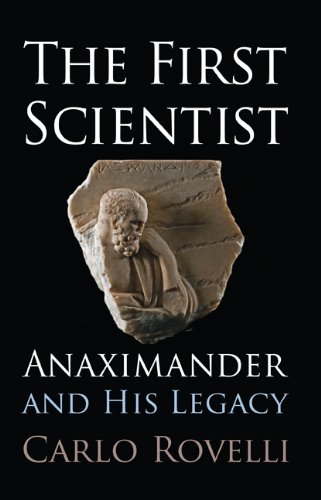

Most ebook files are in PDF format, so you can easily read them using various software such as Foxit Reader or directly on the Google Chrome browser.
Some ebook files are released by publishers in other formats such as .awz, .mobi, .epub, .fb2, etc. You may need to install specific software to read these formats on mobile/PC, such as Calibre.
Please read the tutorial at this link: https://ebookbell.com/faq
We offer FREE conversion to the popular formats you request; however, this may take some time. Therefore, right after payment, please email us, and we will try to provide the service as quickly as possible.
For some exceptional file formats or broken links (if any), please refrain from opening any disputes. Instead, email us first, and we will try to assist within a maximum of 6 hours.
EbookBell Team

4.1
40 reviews“Marvelous. . . . A wonderful book.”—Humana.Mente
“Rovelli is the dream author to conduct us on this journey.”—Nonfiction.fr
“At this point in time, when the prestige of science is at a low and even simple issues like climate change are mired in controversy, Carlo Rovelli gives us a necessary reflection on what science is, and where it comes from. Rovelli is a deeply original thinker, so it is not surprising that he has novel views on the important questions of the nature and origin of science.”—Lee Smolin, founding member and researcher at the Perimeter Institute for Theoretical Physics and author of The Trouble with Physics
Winner of the Prix du Livre Haute Maurienne de l’Astronomie
Carlo Rovelli, a leading theoretical physicist, uses the figure of Anaximander as the starting point for an examination of scientific thinking itself: its limits, its strengths, its benefits to humankind, and its controversial relationship with religion. Anaximander, the sixth-century BC Greek philosopher, is often called the first scientist because he was the first to suggest that order in the world was due to natural forces, not supernatural ones. He is the first person known to understand that the Earth floats in space; to believe that the sun, the moon, and the stars rotate around it—seven centuries before Ptolemy; to argue that all animals came from the sea and evolved; and to posit that universal laws control all change in the world. Anaximander taught Pythagoras, who would build on Anaximander’s scientific theories by applying mathematical laws to natural phenomena.
In the award-winning The First Scientist: Anaximander and His Legacy, translated here for the first time in English, Rovelli restores Anaximander to his place in the history of science by carefully reconstructing his theories from what is known to us and examining them in their historical and philosophical contexts. Rovelli demonstrates that Anaximander’s discoveries and theories were decisive influences, putting Wester